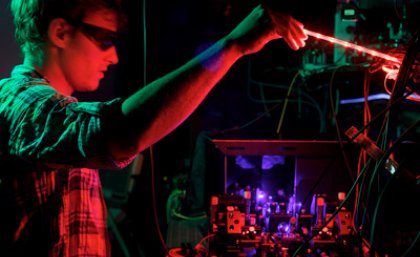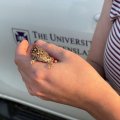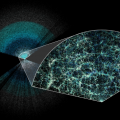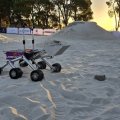
An Australian-American team has shone light — literally — onto the question of whether quantum computers are actually more powerful than conventional counterparts.
“Famously, quantum computers promise a more efficient means of computation, for example using a technique known as `fast factoring’ to efficiently crack encryption codes that form the basis of today’s internet security,” said the study’s lead author, Dr Matthew Broome, of the University of Queensland.
Surprisingly it’s still not known whether quantum computers are the only way to do this efficiently, or whether conventional computers can solve the problem almost as quickly.
In a paper in Science this week, scientists from The University of Queensland and the Massachusetts Institute of Technology (MIT) described the first experimental steps towards answering this question, building a so-called `BosonSampling’ device.
The device implemented a form of quantum computation where a handful of single photons were sent through a photonic network.
The team then sampled how often the photons exited the network.
“Although this sounds simple, for large devices and many photons, it becomes extremely difficult to predict the outcomes using a conventional computer, whereas our measurements remain straightforward to do,” said Dr Broome.
Testing this device — proposed in late 2010 by co-author Associate-Professor Scott Aaronson, and his colleague Dr Alex Arkhipov, both from MIT — will provide strong evidence that quantum computers do indeed have an exponential advantage over conventional computers.
The experimental team leader at UQ Professor Andrew White said: “Scott and Alex’s proposal was a 94-page mathematical tour-de-force.”
“We genuinely didn’t know if it would implement nicely in the lab, where we have to worry about real-world effects like lossy circuits, and imperfect single photon sources and detectors.”
Confirming that the BosonSampling device behaves as expected paves the way for larger and larger instances of this experiment.
The prediction is that with just tens of photons it can outperform any of today’s supercomputers.
“I am excited to see that the first proof-of-principle demonstrations of BosonSampling have been shown — even if only with 3 photons, rather than the 30 or so required to outperform a classical computer,” said Associate-Professor Aaronson.
“I did not expect this to happen so quickly.”
Other researchers in this study are UQ’s Dr Alessandro Fedrizzi, PhD student Saleh Rahimi-Keshari, and Professor Tim Ralph, and MIT’s PhD student Justin Dove.
Financial support was provided by the Australian Research Council Centres of Excellence for Engineered Quantum Systems (EQuS) and Quantum Computing and Communication Technology (CQC2T), and the United States Government.
Related experimental work was published in the same issue of Science by J. Spring et al.
Media: Dr Matthew Broome (+61 4 0644 3479, m.a.broome@googlemail.com) or
Prof. Andrew White (+61 4 6625 6329, agx.white@gmail.com) or School of Mathematics and Physics Communications & Marketing Officer Aarti Kapoor (+61 7 3346 9935, a.kapoor@uq.edu.au).












